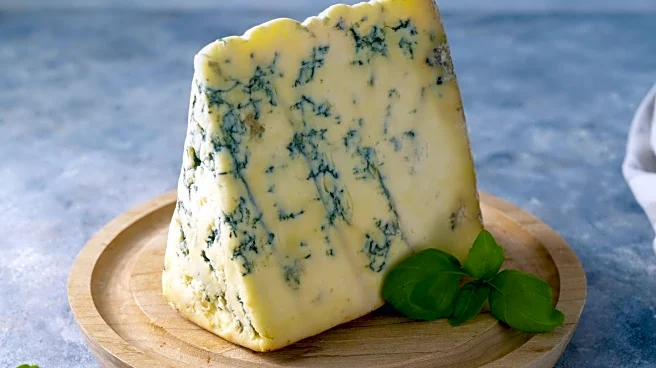What's Happening?
Recent studies have highlighted the health benefits of blue cheese, particularly due to its high content of spermidine, a polyamine associated with longevity and anti-aging. Spermidine has been linked to promoting autophagy, improving mitochondrial function, reducing inflammation, and supporting immune defense. Blue cheese, especially varieties like Blue Stilton, French Roquefort, and Italian Gorgonzola, is rich in spermidine, making it a unique food source for these benefits. While some experts caution that more research is needed to fully understand spermidine's effects, the compound has shown promise in reducing risks of liver fibrosis, neurodegenerative diseases, and age-related decline.
Why It's Important?
The findings on blue cheese and spermidine are significant as they offer potential dietary strategies for enhancing longevity and reducing age-related health issues. This could impact public health recommendations and dietary guidelines, encouraging the inclusion of spermidine-rich foods in balanced diets. The research also supports the idea that traditional cheeses, when consumed in moderation, can be part of a healthy diet, providing essential nutrients like calcium, vitamin K2, and probiotics. This challenges the negative perception of cheese due to its saturated fat content, suggesting that quality and moderation are key.
What's Next?
Further research is expected to explore the mechanisms by which spermidine affects human health and to confirm its benefits through more robust scientific studies. This could lead to new dietary recommendations and possibly the development of supplements or fortified foods. Additionally, the food industry might see increased demand for high-quality, aged cheeses, potentially influencing production and marketing strategies.
Beyond the Headlines
The discussion around blue cheese and spermidine also touches on cultural and dietary preferences, highlighting the importance of personalized nutrition. It raises questions about the balance between traditional food practices and modern dietary trends, and how cultural factors influence food tolerance and health outcomes.









